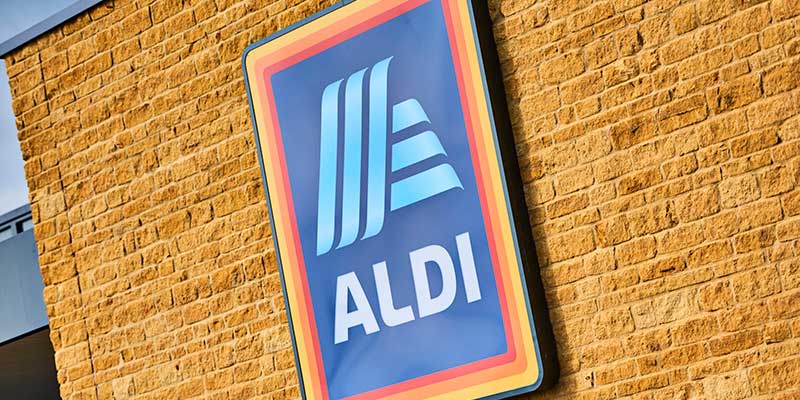With Brexit ramping up the uncertainty in retail, German discounter Aldi has announced that it will increase its spend with British food and drink suppliers by an additional £3.5bn over the next five years.
The company is investing £500m in new and upgraded stores, distribution centres and its supply chain in 2021, which it says will create over 4,000 jobs as well as new opportunities for British food and drink producers.
Giles Hurley, Chief Executive Officer at Aldi UK, said: “We are expecting significant sales growth in 2021 as we open new stores and bring Aldi to more locations across the UK. With the vast majority of our grocery products now coming from British suppliers, our growth will lead to additional jobs and investment in our UK supply chain.”
The commitment from Aldi is expected to help hundreds of small British businesses continue to grow with the supermarket and invest for the future.
One example is Manchester Drinks Company whose ongoing partnership with Aldi began in 2015 to supply the supermarket with a range of gins and gin liqueurs. The partnership has helped the supplier enjoy significant growth, leading to a new site in Yorkshire that employs 19 people. It has also been able to invest in a new production line to meet the growing demand from Aldi.
Richard Benjamin, Co-Owner at Manchester Drinks Company, said: “Our new contract with Aldi is a fantastic opportunity to showcase our flavoured gins and liqueurs to shoppers across the country, and will help to provide stability for our business in an uncertain climate.”
Aldi has also confirmed that the immediate payment terms for small suppliers it introduced at the start of the Coronavirus pandemic will be extended until the end of 2021.
The commitment means that the supermarket will continue to process payments for suppliers with an annual turnover of less than £1m with Aldi as soon as they are submitted. The move will benefit more than 1,000 small British businesses in the supermarket’s supply chain.




